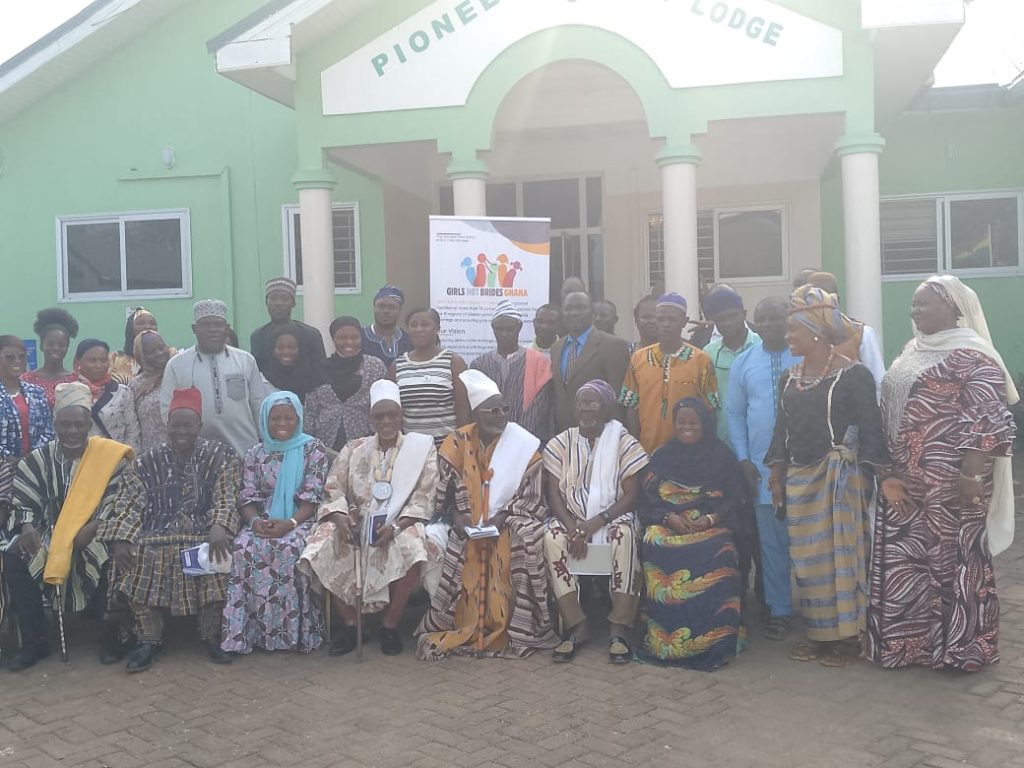By Albert Futukpor
Tamale, Nov 25, GNA – A regional conference dubbed: “Pathways to Ghana’s Progress: Addressing Legislative Gaps in Child Marriage and Customary Laws”, has been held to address the pervasive issue of child marriage in the country.
It was to identify gaps and lapses in legislation and customary laws to help advocate for improved legislation aimed at ending child marriage in the country.
The day’s conference, held in Tamale, was organised by Girls not Brides Ghana Partnership, a national coalition comprising more than 70 civil society organisations across the country, committed to ending child marriage and ensuring girls reach their full potential.
It was in partnership with the Ministry of Gender, Children and Social Protection, and attended by various stakeholders including traditional and religious leaders, government officials and the press drawn from the Northern, North East, Savannah, Upper East, and Upper West Regions.
Mrs Faustina Osei Prempeh, National Chairperson of Girls not Brides Ghana Partnership, speaking during the conference, said it formed part of efforts to develop a communique for a legislative review to help improve the situation in the country.
She said, “We realise that there have not been synergies to some of our customary laws, a development, which is also adversely affecting the fight to ending child marriage.”
A 2021 statistics by the Ghana Statistical Service showed that a staggering 27.6 per cent of girls in the country were married before the age of 18, and over two million child brides or women who, were married as children, currently resided in the country.
A 2020 report by the United Nations Children’s Fund also showed that a significant 63.4% of communities in the country still believed that marriage before the age of 18 was acceptable.

Mrs Prempeh called on all stakeholders to intensify their efforts towards addressing child marriage to facilitate the country’s sustainable development agenda.
Mrs Bushira Alhassan, Northern Regional Director, Department of Gender, said besides the legal and institutional reforms, there was need to confront cultural norms and economic pressures that encouraged child marriage.
She expressed need for enforcement of laws to end child marriage, saying “The Department of Social Welfare and the law enforcement agencies must be empowered with resources, training and adequate personnel to help fight child marriage effectively.”
She called for specialised units within the Police Service and the Judiciary to enable them handle child protection cases with maximum attention and expertise.
Nkilgiwurche (Queen Mother) of the Gonja traditional Area, Boresah Iddisah Jeduah, pledged the support of traditional leaders to enforce by-laws within their jurisdictions to protect girls against such harmful practices.
Miss Sherifa Adam, who was rescued from child marriage and supported by Girls not Brides Ghana Partnership to return to school to complete her tertiary education, called for more community sensitisation to reduce cases of child marriage in the country.
The conference identified the need to properly equip institutions mandated to fight child marriage with the right personnel and resources, need to address issues of poverty by economically empowering communities, need to build capacity of media practitioners to properly articulate issues of child marriage as some of the ways to address and arrest the practice.
It further called for the review of the age for marriage and consent to sexual intercourse as well as the need to use survivors of child marriage to advocate for reforms and interventions to end the practice.
GNA